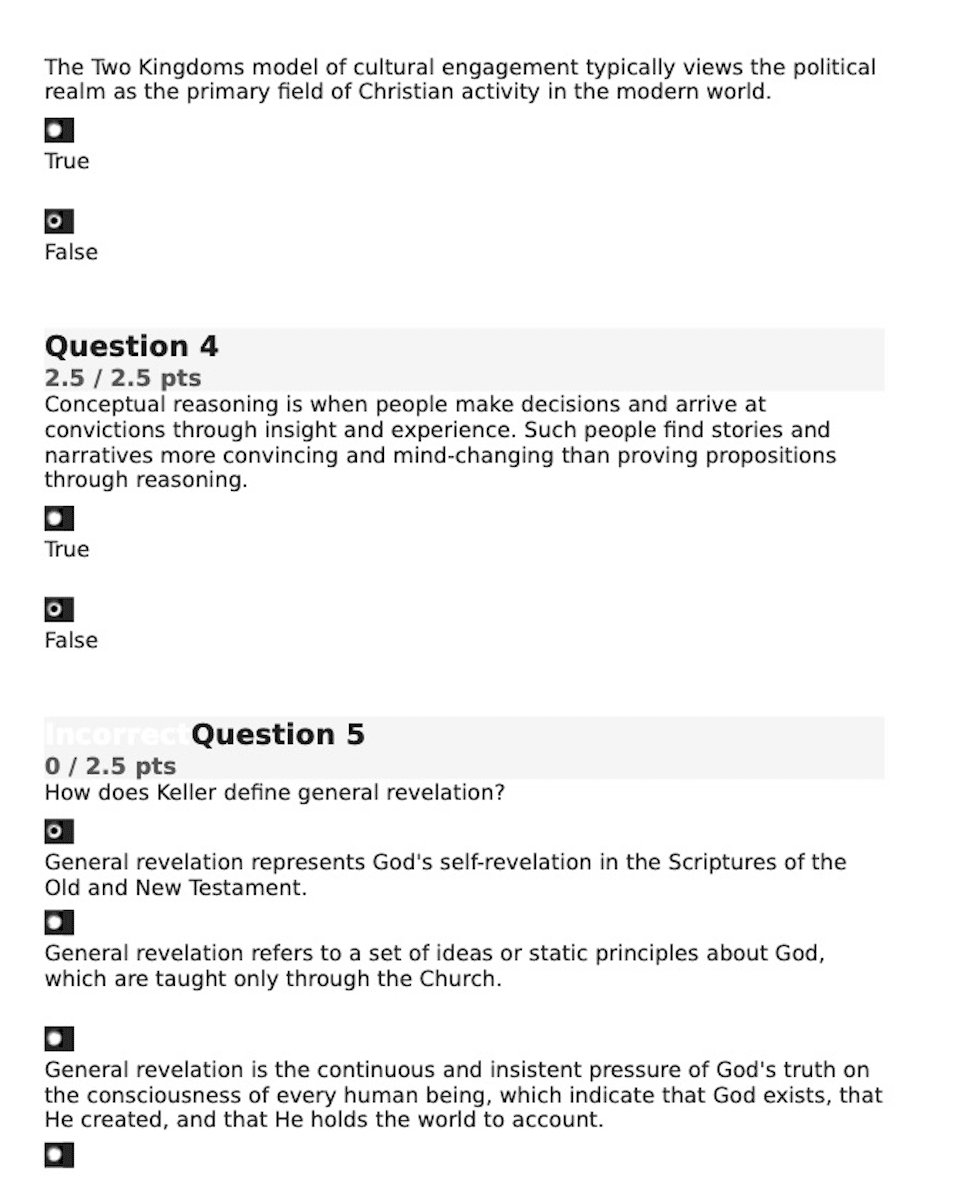RLGN 210 Quiz 5 Liberty
- How does Keller define “pietism?”
- There are no areas where the Bible gives us freedom to conduct life in different ways. Even the most seemingly-minute areas of when to arrive at events, or what foods to eat, are actually prescribed in the Bible. This is the meaning of Sola Scriptura.
- The Two Kingdoms model of cultural engagement typically views the political realm as the primary field of Christian activity in the modern world.
- Conceptual reasoning is when people make decisions and arrive at convictions through insight and experience. Such people find stories and narratives more convincing and mind-changing than proving propositions through reasoning.
- How does Keller define general revelation?
- The gospel should make us humble, but never confident.
- When American fundamentalism went into a more pietistic mode in the first half of the twentieth century, it drew more from its German roots, which emphasized submission to the state and culture, than from its Puritan roots, which did not.
- According to Keller, “A” beliefs are those which cultures hold in common with the Bible, whereas “B” beliefs are those which cultures hold in opposition to the Bible.
- As Romans 1 and 2 teach us, all human beings are made in the image of God, and can therefore understand certain truths about God and reality, even if they reject the gospel. This means we should have some respect for all cultures, even if they are not explicitly Christian.
- What does Keller say is the most important source for learning about a culture?
- It is only when we challenge the culture’s errors on the basis of something it rightly believes that we will see the gospel having an impact on people.
- What three elements does Keller identify in every gospel presentation that Paul preached in the New Testament?
- What trend best describes the number of evangelical Christians in America following World War II?
- What does Keller believe that Romans 1 and 2 teach about contextualization?
- Before the great culture shift in America, evangelicals could not count on their listeners to be mentally able to understand the message of the Christian faith. This message was rarely seen as credible and positive.
- If the church does not think much about culture—about what parts are good, bad, or indifferent according to the Bible—its members will begin to uncritically imbibe the values of the culture.
- In the beginning of this chapter, Keller uses a metaphor to describe the work of contextualization. What is this metaphor?
- It is enough if cultures share certain beliefs with the Bible; if they have these, we do not need to confront the areas where they diverge from the Bible.
- Which thinker does Keller most associate with the rise of the “Christian worldview” concept?
- What is the epistemological challenge?
